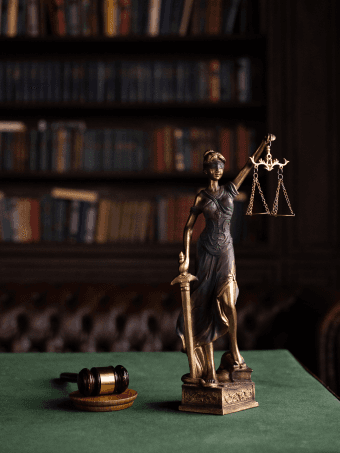Trademark registration protects against both identical and similar brands, providing the owner of the registered trademark with the legal rights to issue cease & desist letters to running businesses and oppose new applications for trademark registration. It is however the responsibility of the owner to monitor cases of potential trademark infringement. Trademark infringement occurs when someone uses a mark that is identical or similar to a registered trademark in connection with goods or services that are the same or similar to those covered by the registered trademark. Trademark owners have the right to enforce their trademarks and prevent others from using similar marks in a way that could cause confusion among consumers or dilute the value of the trademark.
Trademark owners can take a variety of actions to protect their trademarks, including sending cease and desist letters, filing lawsuits, or pursuing alternative dispute resolution methods. Aggressive trademark enforcement is often seen as necessary to maintain the value of a trademark and prevent it from becoming generic or losing its distinctiveness over time. At the same time, well-known brands may be criticized for going after small businesses or individuals who use similar names or logos that are not intended to confuse consumers. This can be seen as bullying or using their size and resources to intimidate smaller players in the market. There are several big brands that are known for being very vigilant in enforcing their trademarks, including Louis Vuitton, Nike, Disney, and Apple.
Louis Vuitton
Louis Vuitton is a luxury fashion brand that is known for its iconic monogram pattern and other distinctive design elements, such as its Damier check pattern and the LV logo. Louis Vuitton is well-known for its efforts to combat the sale of counterfeit products. The company has taken legal action against numerous individuals and organizations involved in the production and distribution of counterfeit Louis Vuitton products, including manufacturers, distributors, and sellers.
In addition to counterfeit products, Louis Vuitton has also taken legal action against individuals and companies that produce parody products that use its trademarks in a way that could be confusing to consumers. For example, the company sued the makers of the "My Other Bag" tote bags, which featured a cartoon image of a Louis Vuitton bag on one side and the words "My other bag is a Louis Vuitton" on the other. Louis Vuitton has also taken legal action against artists who have used its trademarks in their works without permission. For example, the company sued the artist Nadia Plesner for a painting that featured a small child holding a handbag that resembled a Louis Vuitton bag.
Nike
Nike is known for its famous "swoosh" logo, and the company has taken legal action against others who have tried to use similar designs or logos that could cause confusion with the Nike brand. Like Louis Vuitton, Nike is very protective of its brand and has taken legal action against numerous individuals and companies involved in the production and sale of counterfeit or knockoff products that use its trademarks without permission. This includes not only shoes and apparel, but also accessories like hats and bags.
Nike has also taken legal action against individuals and organizations that use its trademarks without permission. For example, the company sued a company called MSCHF over a modified pair of Nike shoes that featured a "satanic" design and were marketed as "Satan Shoes." Nike argued that the shoes infringed on its trademarks and could cause confusion among consumers.
Disney
Disney is famous for protecting its trademarks, which include the iconic Mickey Mouse character and the Disney name itself. The company has filed numerous lawsuits to prevent others from using their characters or names without permission, including lawsuits against unauthorized merchandise and unauthorized use of Disney intellectual property.
In 2018, Disney was criticized for trademarking the phrase "Hakuna Matata," which means "no worries" in Swahili and is a popular phrase in East Africa. Critics argued that the trademark was cultural appropriation and that Disney was attempting to profit off of African culture. However, Disney defended the trademark, stating that it only applied to merchandise and not to the phrase itself.
Apple
Apple is another company that is known for vigorously defending its trademarks, including its famous apple logo and its brand name. The company has filed numerous lawsuits against companies that it believes are infringing on its intellectual property rights, including lawsuits against companies that have used similar logos or names. The company has taken legal action against numerous individuals and organizations involved in the production and distribution of counterfeit Apple products, including manufacturers, distributors, and sellers.
Apple has also been involved in legal disputes over domain names that use its trademarks. The company has pursued legal action against individuals and organizations that have registered domain names that incorporate its trademarks, such as "applestoreonline.com" or "appleipadreviews.com".
Trademark owners can take a variety of actions to protect their trademarks, including sending cease and desist letters, filing lawsuits, or pursuing alternative dispute resolution methods. Trademark enforcement is an important part of protecting a company's intellectual property rights, but it can also generate controversy and criticism, particularly when it comes to smaller companies or individuals who may be targeted by larger corporations.


